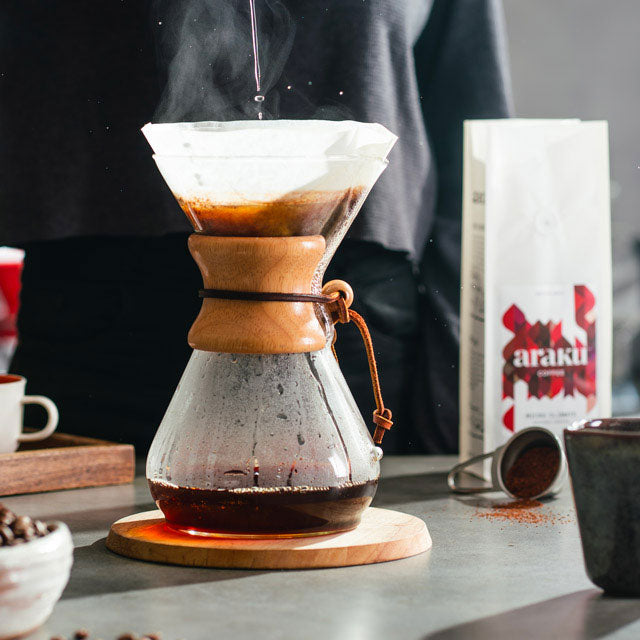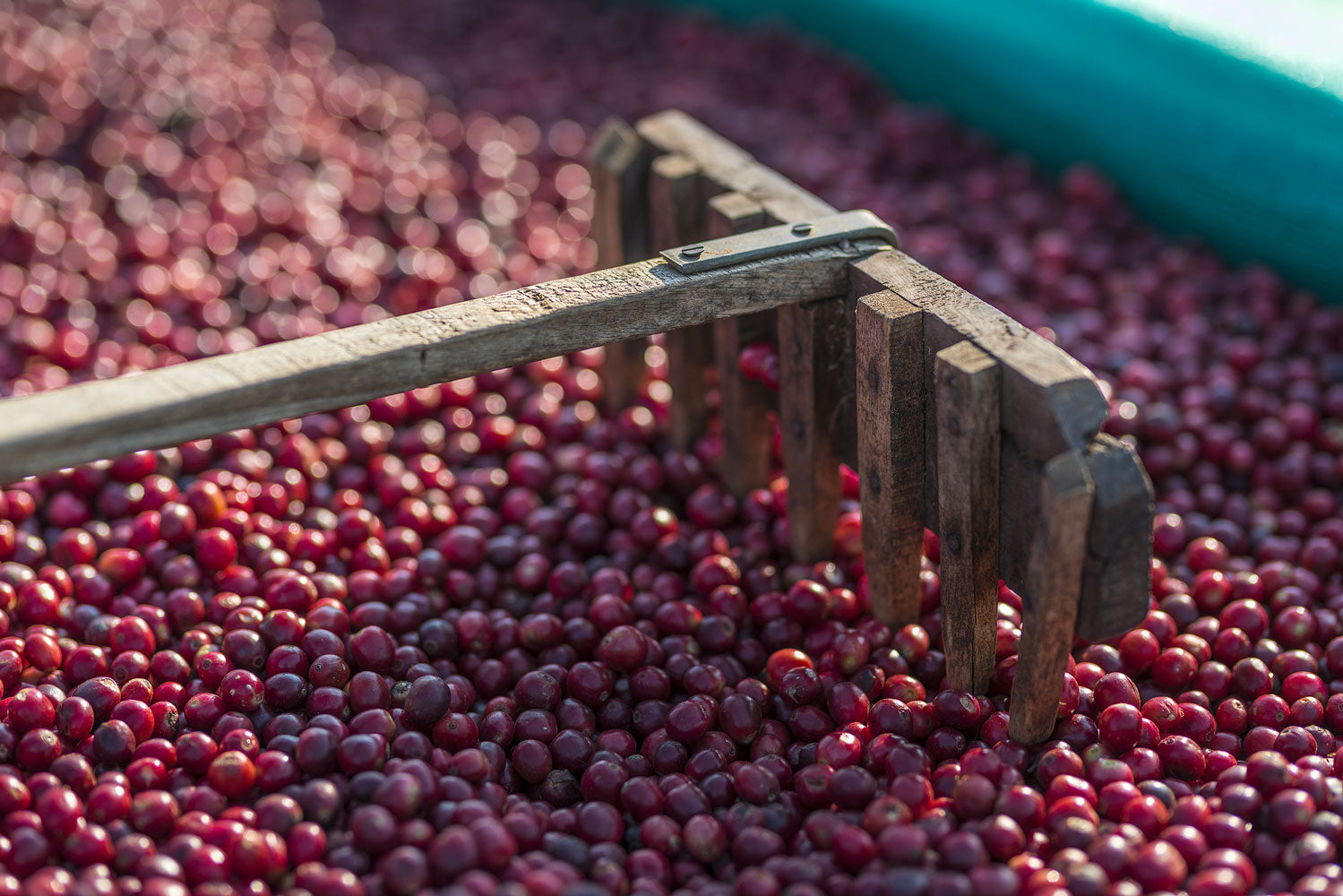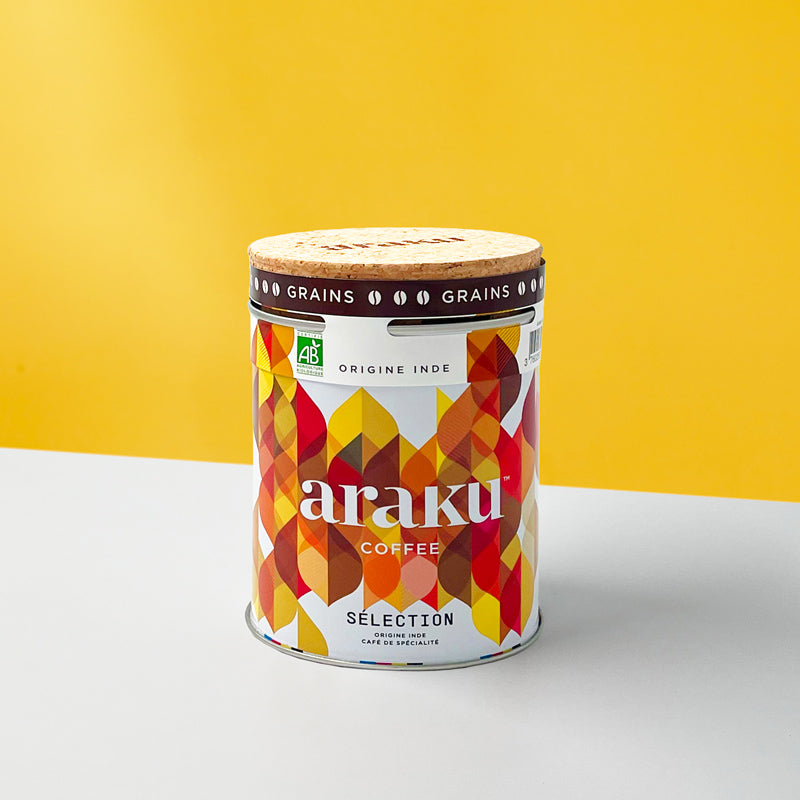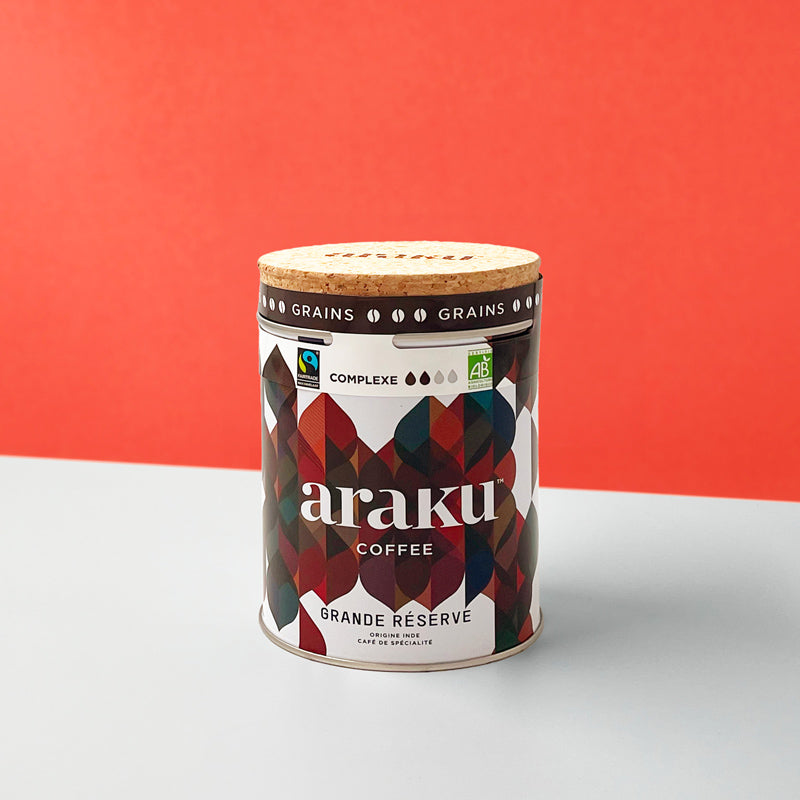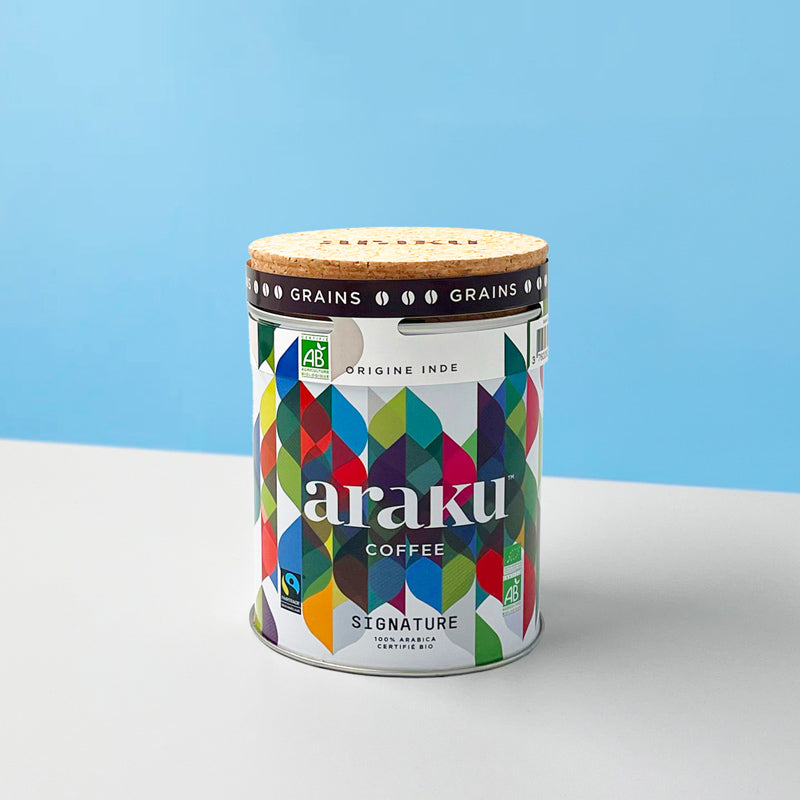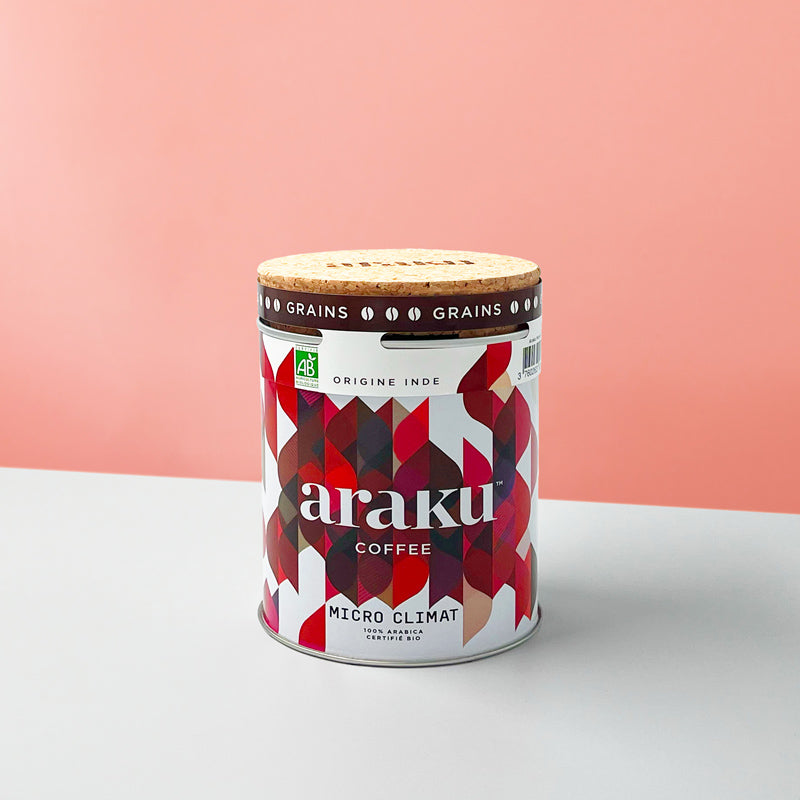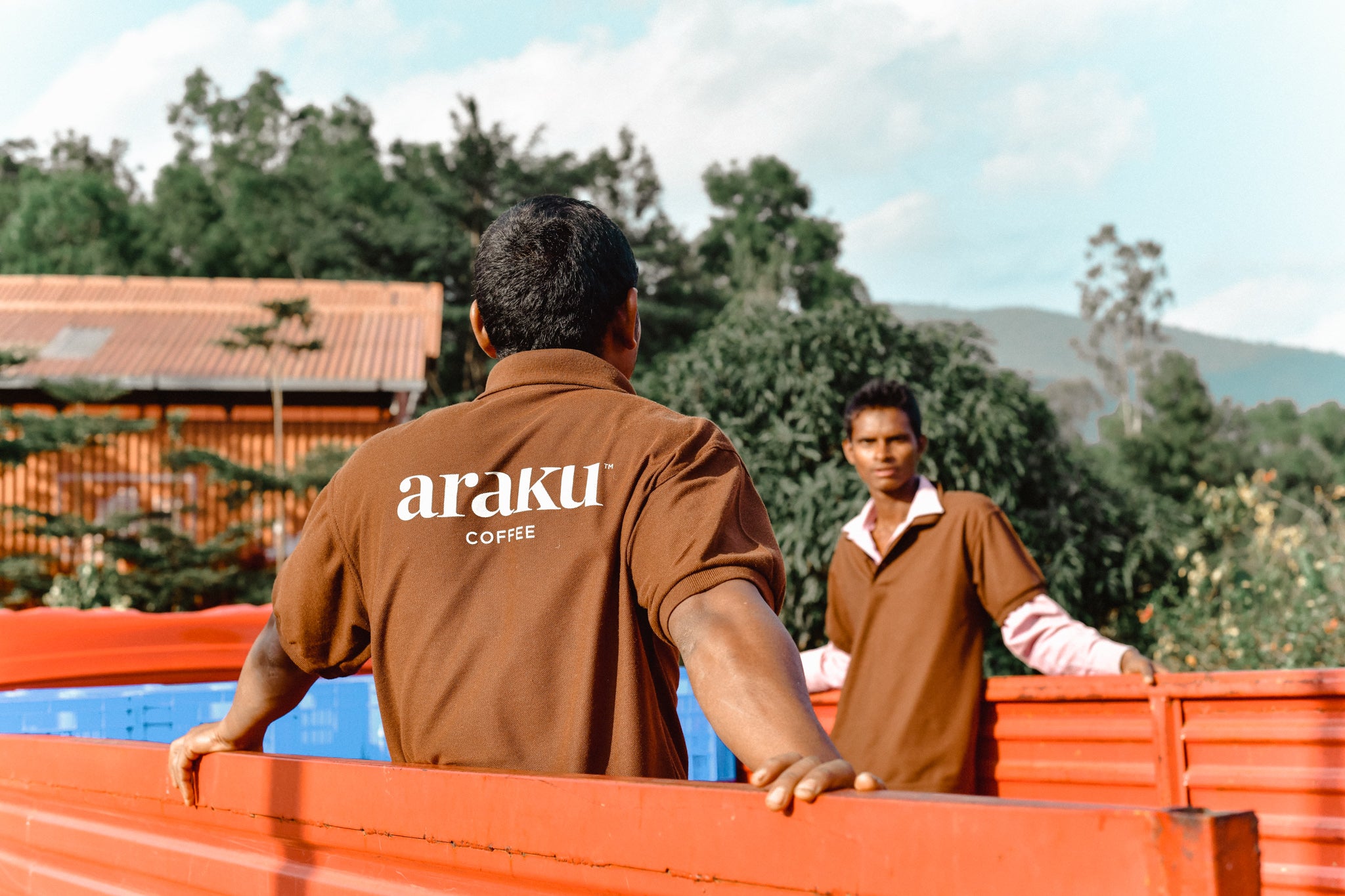
The new world of coffee
At Araku, you are not simply buying organic and fair trade coffee, you are participating in an agricultural, economic and social revolution. In 20 years, Araku has become a recognized specialty coffee brand while carrying the dream of a new world for its farmers and their environment.
The term “Arakunomics” describes our vision of an ideal agricultural model based on 3 pillars:
Remuneration well above the world market price for our farmers
The quality of exceptional coffee for our consumers
Regeneration of soils and ecosystems for the planet
Food System Vision Prize 2050
The Rockefeller Foundation recognized the relevance of our #Arakunomics development model by awarding us the “Food System Vision Prize 2050” in 2020. This award encourages organizations to design their vision of the food and agricultural system by 2050. The good news? The #Arakunomics model is already thriving today in the Araku region of India.
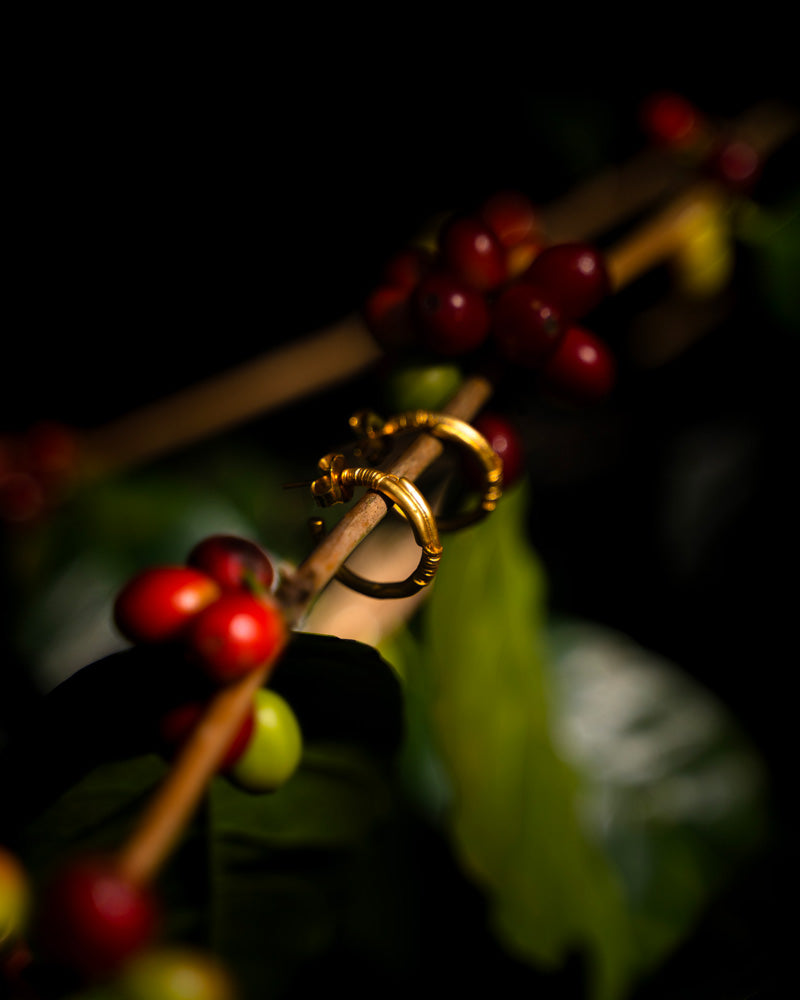
Commitment #1: Profit for our farmers
If our organic coffee is labeled Max Havelaar fair trade, we claim to claim that our approach goes much further than that of the players in the fair trade coffee sector.
Araku is a fully integrated approach to coffee with no intermediary between your cup and our 10,000 coffee farmers. The farmers who grow and harvest, the experts who roast and package, the teams who market: there is only one Araku team.
All the farmers own their plots and are united in a single cooperative in which they are the actors. We provide them with free tools and access to regenerative agriculture practices. We buy their cherry harvest from them, paying them on the same day of harvest. We ensure the transformation of cherries into green coffee as well as our own roasting. We manage marketing under our own brand.
Having an integrated organization ensures that you can redistribute to farmers the fair value of their work without paying intermediaries. Our farmers earn a price per kilo well above that of the world market. It is this organization that allowed us to transform the status of the tribal farmer into independent and profitable farmer-entrepreneurs.
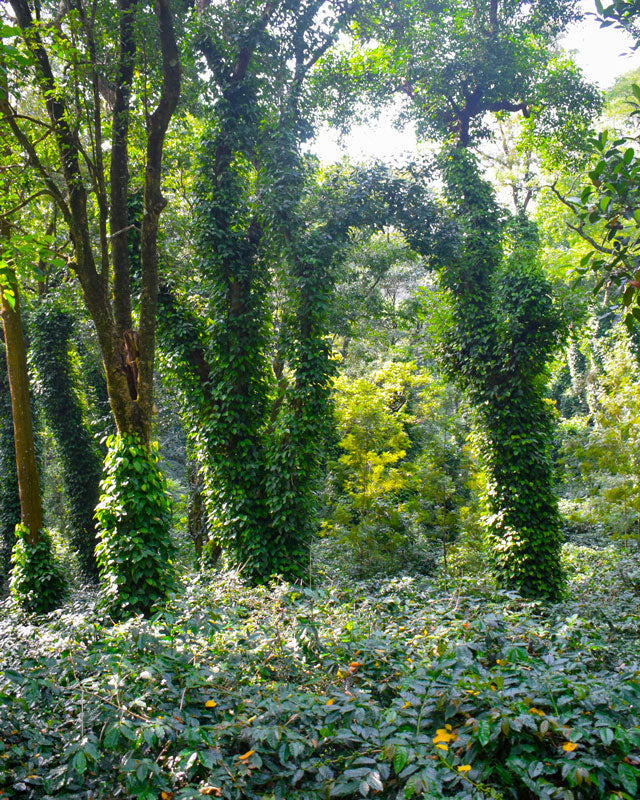
Commitment No. 2: Regeneration of ecosystems
We are certified organic coffee but here too we go far beyond the strict criteria of agriculture without chemicals by defending regenerative agriculture.
Our agricultural system aims to protect and regenerate natural resources, soil, water and biodiversity. Our method? Without dogmatism, we ensure that we combine the best agricultural practices by integrating science and mechanization when they are virtuous.
All our organic coffees are forest coffees grown in agroforestry.
Over the past 20 years, more than 30 million trees have been planted, whether coffee trees, native species or fruit trees which provide additional income to our farmers.
Our raw material is a compost rich in bio-inoculants, produced naturally in the Araku valley.
Our water consumption has been divided by 36 in 10 years.
A map of the territory shared with the populations for a fair balance between plots of coffee, firewood, cereals, livestock... and primary forest.
This holistic vision of the territory makes Araku today the largest biodynamic specialty coffee plantation in the world.
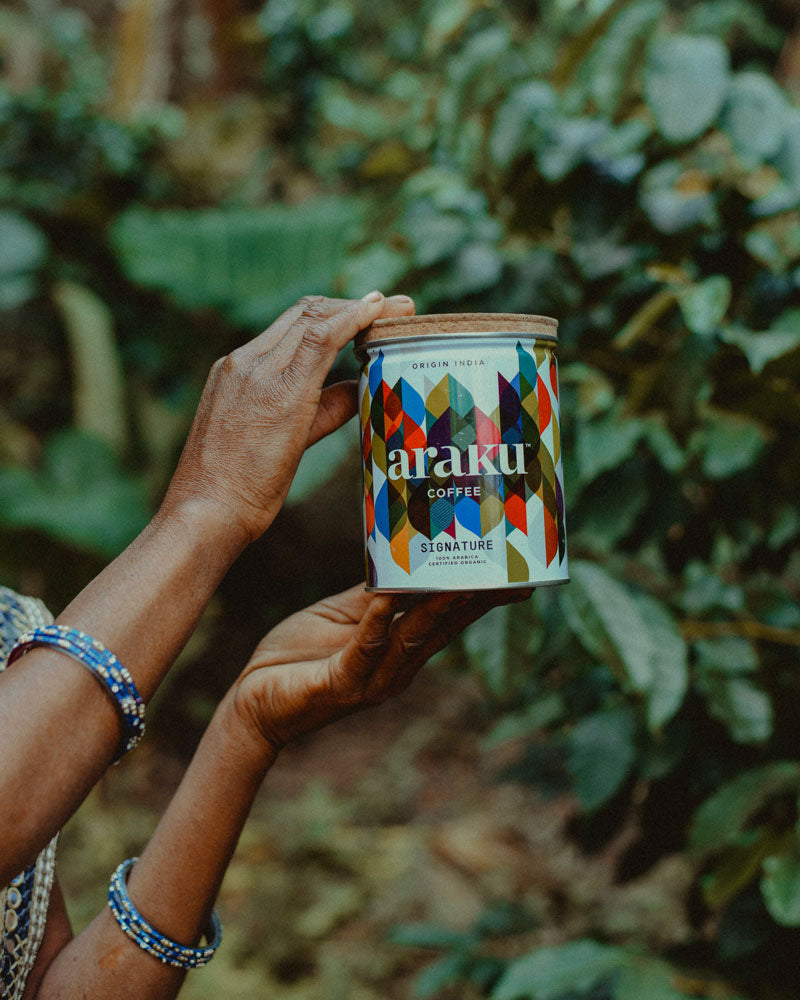
Commitment No. 3: Quality for our consumers
The benefits of engaging with farmers and the planet are immediate: in 20 years, the quality of our organic coffee beans has continued to improve.
ARAKU is today a specialty coffee and recognized as such by the Specialty Coffee Association with minimum scores of 85 out of 100. Some of our micro-lots now exceed 90 and are the subject of fierce bidding between the best specialists of the whole world!
Our innovative approach to mapping the terroir according to 11 rigorous criteria (exposure, nature of the soil, shade, altitude, etc.) has given rise to 6 exceptional coffees, all obviously organic and fair trade, offering a wide diversity of aromatic profiles.
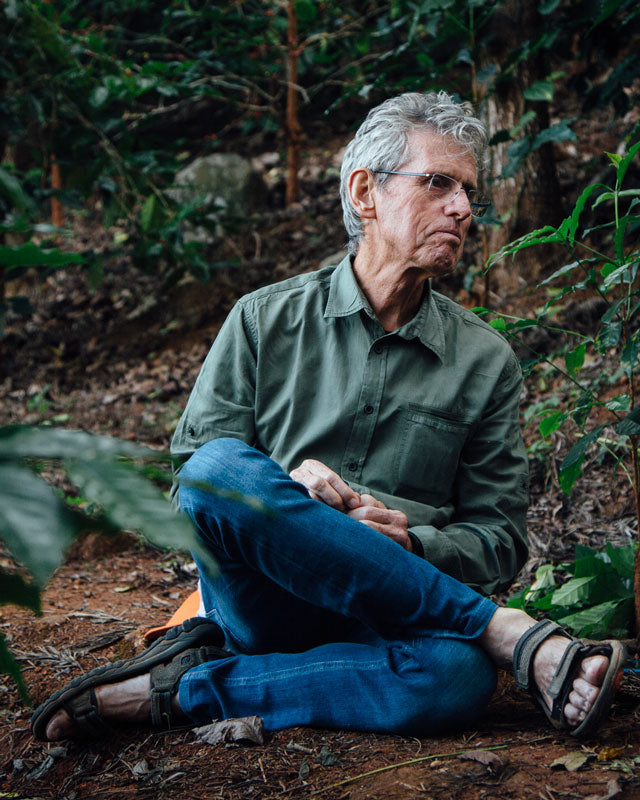
Three Questions for David Hogg, expert in agriculture and biodynamics
Originally from New Zealand but living in India for over 50 years, David is our “Chief Regenerative Agriculture Advisor”. He has supported the Araku project and its farmers since day one. And continues today to train thousands of farmers in the agricultural practices of the future. Recognized as a leading regenerative agriculture expert in India, he also advises many private companies and international institutions such as the FAO (Food and Agriculture Organization of the United Nations). David Hogg is a founding executive member of the Biodynamic Association of India.
What is biodynamic agriculture for you?
David Hogg — Biodynamics, as its name suggests, speaks to us of life and energy. In biodynamic agriculture, we use natural biological processes that help achieve the balance and alchemy necessary for the growth of life. We only use compost of plant or animal origin produced locally, which allows us to best meet all the microbiological needs of the soil, through the energy of natural micro-organisms.
Why do you think that biodynamic agriculture as you practice it in the Araku Valley embodies the future of our planet?
David Hogg — Our effort in the valley has been to democratize this scientific knowledge, so that it is no longer held only by a handful of experts but by millions of farmers at the head of small farms. In this way we can increase organic matter in soils (carbon) and substantially reduce water requirements. This organic matter optimizes the use of residual soil hydration and contributes to mitigating climate change. It also promotes the proliferation of beneficial insects which help make coffee plants stronger and more resilient, with better immunity. These are major points of difference with organic agriculture and extensive agriculture. In summary, by using less water, making the soil richer and the plants more resistant, the farmer manages to create products offering better taste and nutritional qualities. Nature, the product and the farmer come out winners!
Why did you choose the Araku Valley to start sowing the seeds of a biodynamic movement?
David Hogg — Biodynamics as practiced at Araku is not an innovation! It is even the oldest form of organized organic cultivation, since it dates from 1924. It takes into account all dimensions of agriculture to produce healthy harvests and ecosystems. Part of biodynamics even has its roots in Vedic agriculture! 20 years ago, Araku embodied the painful example of a rich ecosystem that had become fragile. Our modern development paradigms were sowing the seeds of climate change for this region that had always lived in harmony with nature. The Adivasis - the primitive Araku tribe - appeared to us as a model of ecological warriors, who could show the world another face of the future of agriculture, ecology and food security.
Our organic coffee ranges
Exceptional coffees
ARAKU exceptional coffees embody excellence, they are distinguished by incomparable quality and remarkable sensory characteristics.
Specialty coffees
Specialty coffees typically score above 80 out of 100, and ARAKU coffee consistently scores above 90.
Pure Arabica coffees
ARAKU specialty coffees are made exclusively from beans of the Arabica variety, recognized as the most popular and appreciated worldwide.
Fair Trade Coffees
ARAKU specialty coffees are fair trade and follow ethical trading standards that ensure fair and dignified working conditions for producers.
Indian Cafes
ARAKU Indian coffees come from a valley in India. India boasts a thriving specialty coffee culture that makes it one of the best in the world.
Grand Cru Coffees
Grand Cru coffees are exceptional coffees. They are carefully selected from specific regions, renowned for their specialty coffee culture.
Organic Coffee
Organic coffees are grown using agricultural practices that preserve the environment and exclude the use of pesticides and chemical fertilizers.



